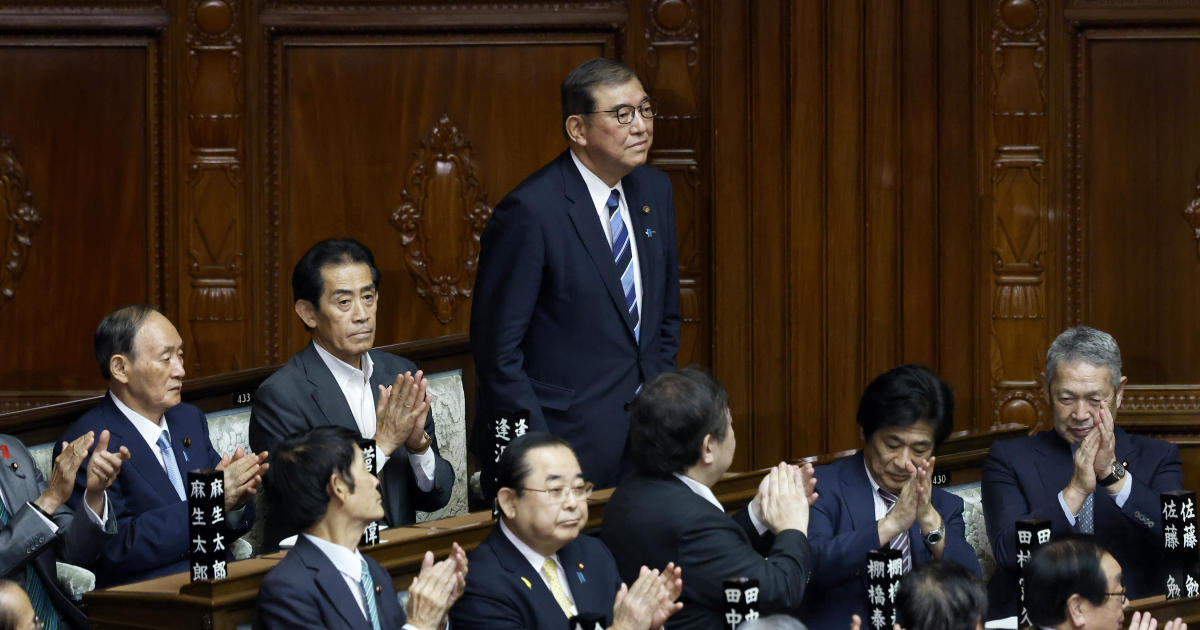Shigeru Ishiba’s Ascent to Prime Minister of Japan marks a significant shift in Japanese politics. His election as the new leader of the Liberal Democratic Party (LDP) and subsequent appointment as Prime Minister followed the resignation of Fumio Kishida, whose administration was plagued by scandals. Ishiba’s appointment signals a potential realignment within the LDP and a shift in foreign and domestic policy, setting the stage for a snap election and a period of considerable political change. The transition is not without its challenges, with concerns about Ishiba’s relatively weak power base and the short timeframe before the upcoming election. His proposed policies, particularly his vision for a stronger Asian security alliance, represent a bolder approach to regional geopolitics than his predecessor. However, the immediate priorities seem to be restoring public trust and navigating both domestic economic issues and increasing regional instability.
Ishiba’s Policy Platform: A Bold Vision for Japan
Ishiba’s vision for Japan encompasses significant changes across domestic and foreign policy domains. His plans are characterized by a proactive approach to security, economic revitalization, and a shift away from the more conciliatory stances of recent administrations.
Strengthening Japan’s Security Posture
A core tenet of Ishiba’s platform revolves around significantly bolstering Japan’s security posture, notably through the proposal of an “Asian NATO.” This concept aims to create a regional collective defense mechanism to counter growing threats from China, North Korea, and Russia. The proposal involves leveraging existing security frameworks like the Quad (the United States, Australia, India, and Japan), incorporating other regional partners, and potentially even considering joint management of US nuclear weapons. This strategy contrasts sharply with the more cautious approach to military alliances favored by some predecessors. This radical suggestion aims to provide a stronger deterrent and fosters closer military cooperation among nations in the region, solidifying Japan’s role as a significant player in regional security. The details of this proposal, particularly the element concerning nuclear weapons, remain subject to much debate and international reaction.
Economic Revitalization and Domestic Reforms
Alongside security considerations, Ishiba plans to focus on reigniting Japan’s economy. He intends to build on Kishida’s economic policies, which aimed at tackling deflation and increasing real wages. This strategy requires addressing several persistent economic issues, including Japan’s declining birthrate and population which is hindering economic growth. This includes a potential emphasis on structural reforms, addressing challenges like an aging population and technological innovation to boost productivity and stimulate the economy. Ishiba’s plans also encompass investing in resilience against natural disasters, given Japan’s vulnerability to seismic and weather-related events. His approach seeks not just to boost economic growth but also address societal issues and modernize aspects of the economy to better position Japan for future challenges.
Domestic Political Landscape and Challenges
Ishiba’s ascent to the premiership isn’t without challenges. His relatively weak power base within the LDP, compared to leaders affiliated with established factions, makes his governance susceptible to instability. This fragility could manifest in challenges enacting his policies, forming stable coalitions, and potentially even facing early challenges to his leadership.
Navigating Factional Politics and Building Consensus
The LDP, with its powerful factions and interwoven networks of power brokers, poses inherent challenges to a leader like Ishiba who does not originate from an established power base. He must adeptly navigate these internal dynamics, garnering support and building alliances to push forward his agenda. His lack of strong ties to these factions means he needs to develop stronger coalitions based on policy alignment rather than established relationships within the Party. The success or failure of his premiership rests partially on his ability to unite disparate factions and garner support for his proposals within his own party, a task that will necessitate significant political dexterity and skill. Failing to build broad consensus and successfully navigating partisan politics could limit his legislative effectiveness.
Foreign Policy and Regional Dynamics
Ishiba’s foreign policy, particularly his vision for an Asian NATO and a strengthened US-Japan security alliance, represents a more assertive and proactive stance than his predecessors. This raises important questions about its reception both within Japan and regionally, impacting Japan’s international relationships, particularly with regional allies and rival powers.
Navigating Regional Tensions and Alliances
Ishiba’s proposals present significant implications for the geopolitical balance in Asia. His ambition of creating a regional collective defense system, reminiscent of NATO, involves a substantial recalibration of military and diplomatic arrangements. While some may see it as essential to contain threats from nations such as China and North Korea, other countries in the region might perceive it as destabilizing or contrary to their national interests. It is uncertain how this proposition would be viewed by Japan’s immediate neighbors, regional alliances, and even the United States itself. His vision for more equitable relations within the U.S.-Japan alliance including discussions about joint management of military bases, too, require cautious management to prevent friction within the alliance while simultaneously strengthening the partnership.
Take Away Points:
- Shigeru Ishiba’s election as Prime Minister represents a notable shift in Japanese politics.
- His policy platform emphasizes strengthening Japan’s security posture through proposals such as an “Asian NATO” and revitalizing the Japanese economy while simultaneously addressing several key domestic challenges.
- Ishiba faces considerable political challenges related to his relatively weak power base within the LDP and potential for internal friction.
- His foreign policy stance represents a more assertive approach to regional security, leading to implications for relationships with regional allies and rival powers. His success will depend significantly on his ability to both unify his own party and navigate complex geopolitical issues in Asia.




